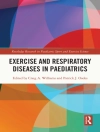This Handbook is an indispensable guide for the multidisciplinary management of eating disorders. It discusses a broad range of issues: managing high-risk patients, the challenges of inserting feeding tubes, addressing nutritional aspects and dealing with additional disorders which might complicate matters, such as diabetes, coeliac disease and cystic fibrosis. It discusses fertility, pregnancy, and eating disorders in children and adolescents, as well as addressing the needs of families.
Chapters contain key checklists and flow diagrams. Abundant pictures and conversations, coloured diagrams, charts, maps and boxes, support readers’ varying learning styles and assist retention of key points. Vignettes taken from real (but strenuously anonymised) cases appeal to clinicians’ preference for case-based learning. The book also functions as a practical manual of ‘What to do – and what NOT to do’ with practical scenarios.
In the acute situation, clinicians willbe able to go directly to the relevant chapter to guide the team through the ‘when, where, how, why and with whom’ of assessing and managing patients with eating disorders. The book is primarily aimed at postgraduate physicians managing patients with Eating disorders on Gastrointestinal, Endocrine or general medical wards, and those who seek to deepen their expertise as they sit higher professional examinations. It is of interest to both medical and psychiatric clinicians, as well as useful to nursing and multidisciplinary staff who want to develop a compassionate understanding of the true pain driving their patients’ behaviours.
Inhoudsopgave
Understanding Anorexic Behaviour.- Medical Assessment.- How do medical conditions interact with Eating Disorders?.- The Medical Management of Inpatients with Anorexia Nervosa. Care on the General Medical Ward.- Medicolegal Aspects.- Working with Parents, Partners and Other Carers.- Eating and feeding disorders in children and adolescents.- Management of Over Activity and Compulsive Exercise in the Treatment of People with Eating Disorders.- The Management of Eating Disorders where there is a Comorbid Personality Disorder.- Management of Eating Disorders when there is also substance misuse.- Management of eating disorders in patients with Type 1 (Insulin Dependent) Diabetes.- Perinatal Illness in Eating Disorders.- Managing Transitions in the Treatment of Eating Disorders.- Severe and Enduring Eating Disorders.- The Compassionate Management of a Death.
Over de auteur
Alastair W Mc Kinlay, BSc (Edin), MB Ch B, FRCPEd, FRCP(Glas)
Consultant Gastroenterologist, Aberdeen Royal Infirmary, Foresterhill, Aberdeen.
Dr Mc Kinlay trained in Edinburgh, Glasgow and Aberdeen, and has a specialist interest in nutrition. He has particular interests in functional gastrointestinal disease and the management of eating disorders.
He was part of the team that developed the NHS Health Improvement Scotland (HIS) Standards for Nutritional Care, has chaired the Scottish branch of the British Association for Parenteral and Enteral Nutrition (BAPEN) and is a former President of the Scottish Society for Gastroenterology.
He has over 25 years experience as gastroenterologist working in a busy teaching hospital and is Physician to the Eden Unit, the specialist inpatient facility for patients in the North of Scotland with eating disorders.
Jane B. Morris, MA, MB, BChir (Cantab), MRCPsych
Consultant Psychiatrist, Eden Unit, Royal Cornhill Hospital, Aberdeen
Dr Morris trained in Medical Psychotherapy and CAMHS, and her current specialism is eating disorders. She is the Chair of Scot FED (the Faculty of Eating Disorders of the Royal College of Psychiatry in Scotland) and EEATS (Eating Disorders Education & Training Scotland). For a number of years she was a designated medical practitioner with the Scottish Mental Welfare Commission.
Dr Morris edited and co-wrote the ABC of Eating Disorders and has published reviews, papers, articles and blogs in various journals . She sees herself as first and foremost a clinician, rather than a research scientist, and has learned most from working closely with patients and their families.












